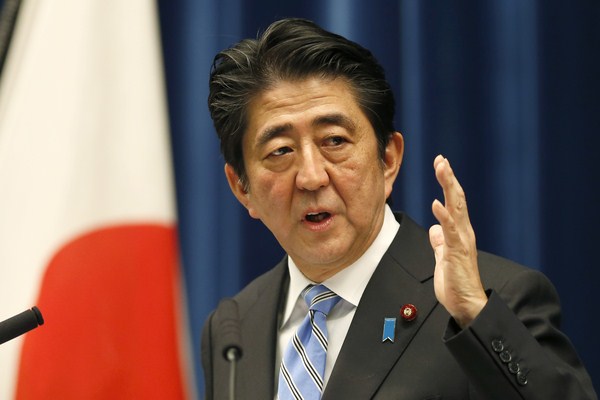Having returned political stability to Japan, Prime Minister Shinzo Abe today called snap elections for next month to secure a verdict on his already implemented economic policies, dubbed “Abenomics,” as well as a mandate to continue applying his strategies to expand the economy. The general elections, scheduled for mid-December, will come roughly two years after Abe was elected in a sweeping victory in December 2012. His current tenure, Abe’s second as prime minister, has been defined mainly by his efforts to jumpstart Japan’s long-beleaguered economy, focusing on a “three-arrow approach” to restore growth and confidence through increased stimulus, quantitative easing and structural reform.
Abe’s impressive political rebirth in 2012, after quitting the prime minister’s office in 2007 amid scandal and a personal illness, also marked a return to power of the Liberal Democratic Party (LDP). The party has controlled Japanese politics for all of the post-World War II period aside from a few short interludes, including the two-and-a-half-year reign by the Democratic Party of Japan (DPJ) from June 2010 until Abe’s most recent election.
In a press conference today, Abe announced that he would dissolve the Japanese Diet later this week, after having already informed senior officials in the LDP and his coalition partner, the New Komeito Party, of his plans in the previous days. He also declared his intention to postpone for 18 months another increase in the personal consumption tax, from the current level of 8 percent to 10 percent, slated for October 2015. The first tax hike, from 5 percent to 8 percent, was implemented in April, following landmark legislation by the previous DPJ-led government in August 2012. The Japanese public remains wary that further tax increases may harm the country’s fragile recovery. After slow growth numbers for Japan’s economy in the past quarter, including the announcement Monday that Japan had slipped into recession, Abe calculated that a delay on the second hike in the consumption tax may buy him goodwill among voters ahead of an election.

